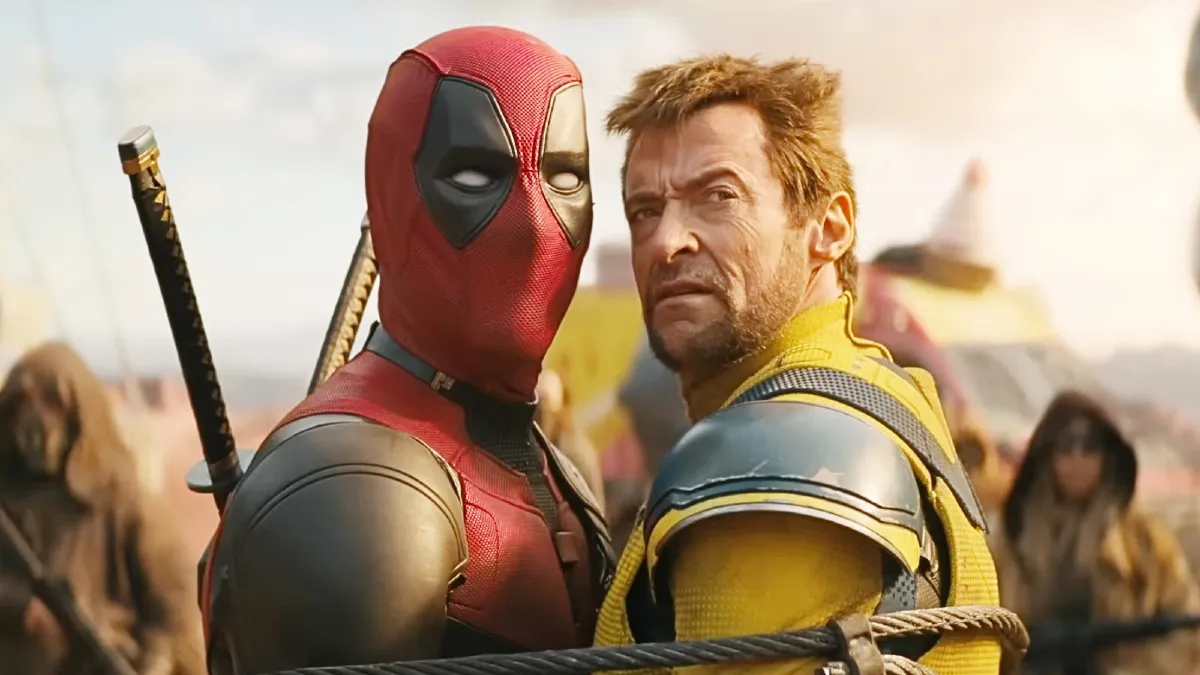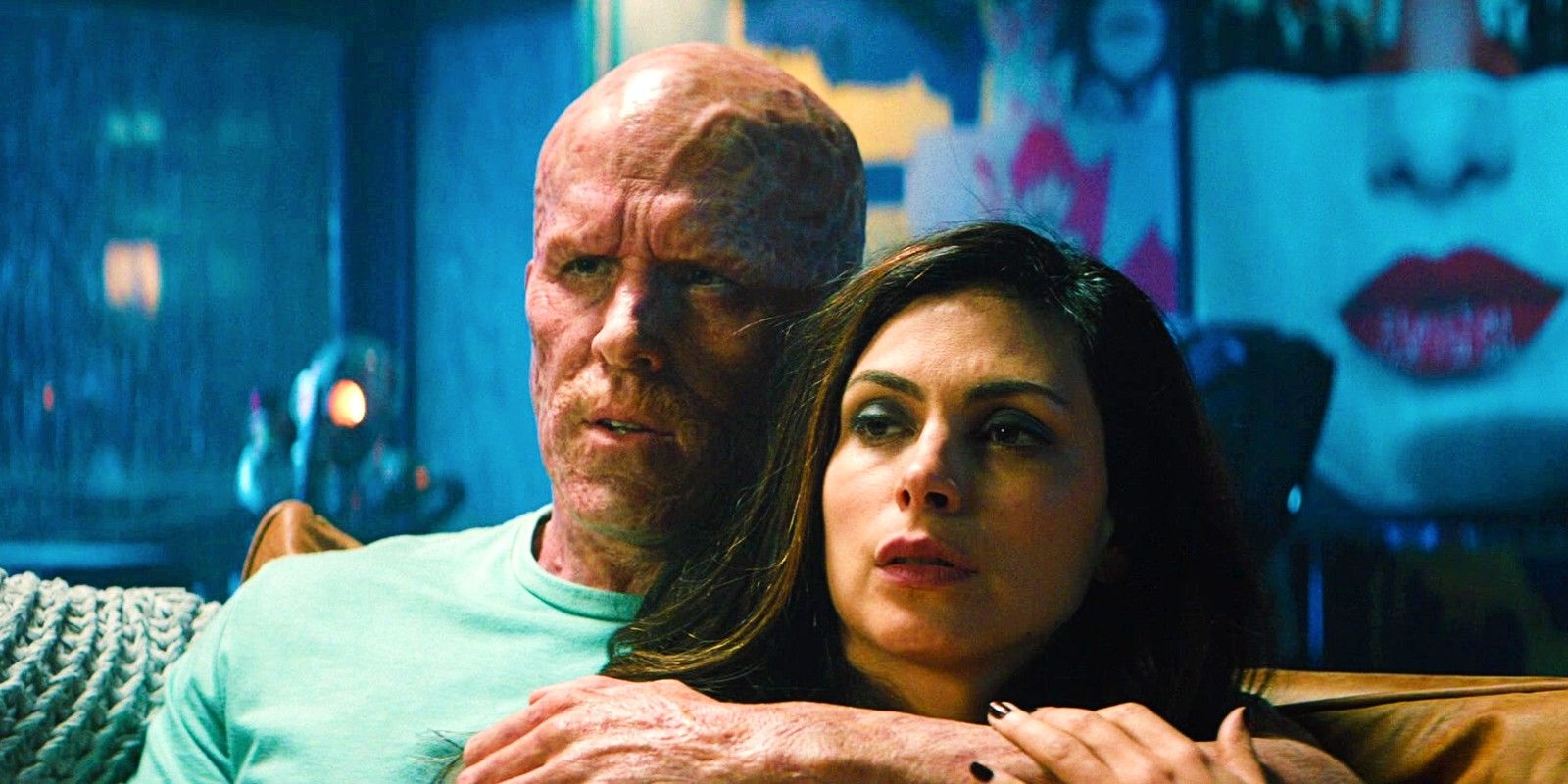Everything that happened would have still happened if this character’s reputation was not butchered to pieces.

When Marvel Studios decided to bring Deadpool into the Marvel Cinematic Universe (MCU), fans were understandably excited. The character, known for his irreverence, humor, and chaotic approach to heroism, seemed like a perfect fit for the world of Marvel.
With the introduction of Wolverine alongside Deadpool, the hype was palpable. However, as much as Deadpool & Wolverine aimed to solidify Wade Wilson’s place as a bona fide hero within the MCU, it did so at a significant cost—one that leaves a bitter taste in the mouths of longtime fans.
The character who bore the brunt of this change wasn’t Deadpool or Wolverine, but Vanessa Carlysle, Deadpool’s beloved partner, whose essence and reputation were unjustly altered.
When we first met Vanessa in the original Deadpool films, she was a character unlike any other in the superhero genre. She accepted Wade Wilson in all his flawed, messy glory—embracing his dark sense of humor, his life as a mercenary, and even his disfigured appearance after his transformation into Deadpool.
Their relationship was a breath of fresh air, an unapologetic celebration of love that thrived on mutual acceptance. Vanessa didn’t demand Wade to change, to conform to the typical mold of a hero. Instead, she loved him for who he was, flaws and all, and in doing so, she became a beacon of light in Deadpool’s chaotic world.

But with Deadpool & Wolverine, something shifted. Vanessa, once the embodiment of unconditional love and acceptance, was suddenly rewritten into a character who no longer resonated with the traits that made her so beloved.
The film attempts to turn Wade into a traditional hero—one who is ready to sacrifice himself for the greater good and save the world. While this character arc could have been powerful on its own, it was tarnished by the way Vanessa’s character was handled.
Instead of standing by Wade as she always had, supporting him as he navigated his inner turmoil, Vanessa’s character was altered to push him toward this heroic path in a way that felt forced and unnecessary.
The Vanessa we see in Deadpool & Wolverine is markedly different from the one we grew to love in the first two films. No longer content with Wade’s irreverence and lack of ambition, she suddenly seems fixated on his failure to join the Avengers, to fit into the mold of a traditional superhero.
This shift in her character is jarring and out of place, given that the very foundation of her relationship with Wade was built on accepting him as he was—a man who was anything but traditional. The love story that had captivated audiences was one of unfiltered, unapologetic love, where both characters embraced their flaws and found solace in each other.
Vanessa’s sudden turn toward dissatisfaction and judgment undermines this dynamic, painting her as a character who only loves Wade when he conforms to her new expectations.
This change is not only disappointing but also feels like a betrayal of the character we once knew. Vanessa, who once ripped off Wade’s mask, saw his disfigured face for the first time, and still reassured him with her love and acceptance, is now portrayed as someone who would leave him because he didn’t live up to her newfound standards.
It’s a stark contrast that diminishes the depth and authenticity of their relationship. What happened to the Vanessa who, despite the shock of seeing Wade’s altered appearance, could still say, “After a brief adjustment period and a bunch of drinks, it’s a face… I’d be happy to sit on?” That Vanessa was someone who loved Wade unconditionally, who wasn’t swayed by societal expectations or the allure of a more conventional hero.
The problem with this character shift lies not just in the fact that Vanessa was changed, but in the way she was changed. It’s as if Marvel needed to reinforce Wade’s heroism by creating a conflict where there wasn’t one before.
By turning Vanessa into a character who demands more from Wade—who seemingly no longer accepts him as he is—the film undercuts the very essence of what made their relationship special. Instead of allowing Vanessa to be the supportive partner who loves Wade for who he is, the film paints her as someone who is dissatisfied with his lack of ambition and heroism. This narrative decision feels not only unnecessary but also damaging to both characters.
One of the most troubling aspects of this change is how it parallels other instances within the MCU where female characters have been altered or diminished to serve the development of male characters.
Wanda Maximoff, for example, was another character whose arc in WandaVision and Doctor Strange in the Multiverse of Madness drew criticism for how it portrayed her grief and anger, ultimately turning her into a villain. Similarly, Vanessa’s transformation in Deadpool & Wolverine feels like a step backward, reducing her to a plot device that propels Wade toward heroism at the expense of her character’s integrity.
This isn’t to say that character development or growth is inherently bad—on the contrary, it’s essential for compelling storytelling. However, the way in which Vanessa’s character was altered feels disingenuous to her established personality and the relationship dynamics that were carefully built over two films.
Instead of allowing Wade and Vanessa to grow together, facing new challenges while maintaining the core of their relationship, the film opts to create unnecessary conflict by fundamentally changing who Vanessa is.
What’s particularly frustrating is that this change wasn’t necessary to achieve the film’s goals. Wade’s journey toward heroism—his willingness to sacrifice himself and save the world—could have been accomplished without altering Vanessa’s character.
Her unwavering support and love could have remained intact, providing Wade with the emotional foundation he needed to step up as a hero. It wasn’t Vanessa’s dissatisfaction or judgment that spurred Wade into action; it was the threat to her life and the lives of his friends that ultimately motivated him. By keeping Vanessa’s character consistent, the film could have reinforced the idea that love and acceptance are powerful motivators for heroism, rather than undermining the relationship that fans had come to adore.
The shift in Vanessa’s character also raises broader questions about how female characters are treated in superhero narratives. Too often, they are sidelined, altered, or diminished to serve the arcs of male protagonists. This trend not only perpetuates outdated gender stereotypes but also robs female characters of their agency and complexity.
Vanessa’s transformation in Deadpool & Wolverine is a prime example of this issue, as it reduces her from a strong, independent character who loved Wade unconditionally to someone whose love is conditional on his heroic achievements.
It’s worth noting that the original Vanessa—Fox’s Vanessa—was a character who defied these stereotypes. She was confident, resilient, and fully aware of the challenges that came with being in a relationship with someone like Wade. She didn’t try to change him; she embraced him for who he was.
This portrayal was not only refreshing but also important, as it provided a rare example of a female character in a superhero film who wasn’t defined by her relationship to the male lead but rather by the depth and authenticity of that relationship.
Unfortunately, the MCU’s version of Vanessa seems to have lost these qualities. She’s no longer the character who saw Wade’s flaws and loved him anyway. Instead, she’s been reimagined as someone who expects him to conform to a certain ideal—a hero worthy of joining the Avengers. This shift not only diminishes her character but also sends a troubling message about the nature of love and acceptance.
It suggests that in order to be loved, one must meet certain expectations, adhere to certain standards, and ultimately change who they are to fit into a predefined mold.
As fans, we can’t help but feel disappointed by this turn of events. The relationship between Wade and Vanessa was one of the most compelling aspects of the original Deadpool films—a relationship built on mutual respect, acceptance, and love that transcended superficial expectations.
By altering Vanessa’s character in Deadpool & Wolverine, Marvel has not only undermined this relationship but also missed an opportunity to explore the complexities of love and heroism in a more nuanced way.
In the end, Deadpool & Wolverine may have succeeded in establishing Wade Wilson as a true hero, ready to sacrifice himself for the greater good. But in doing so, it sacrificed one of its most beloved characters—Vanessa Carlysle—on the altar of heroism. This narrative decision feels like a betrayal of the character we once knew and loved, and it leaves us questioning whether the cost of Wade’s heroism was worth it.
The Vanessa we met in the first two Deadpool films would have stood by Wade no matter what, accepting him for who he was and loving him unconditionally. It’s a shame that the MCU didn’t allow this version of Vanessa to persist, choosing instead to reshape her into someone who demands more from Wade than she ever would have before.
In doing so, the film not only tarnished Vanessa’s reputation but also undermined the very essence of the relationship that made Deadpool’s story so compelling in the first place.
In the end, we’re left with a sense of loss—not just for the character of Vanessa, but for the relationship that could have been. Deadpool & Wolverine may have given us a hero in Wade Wilson, but it did so at a cost that fans will be mourning for a long time to come.
News
🚨¡IMPACTANTE REVELACIÓN! Alejo y Luisa Eliminados en el Capítulo 107 del Desafío 2024
El Desafío 2024 continúa sorprendiendo a sus seguidores con giros inesperados y eliminaciones que dejan a todos boquiabiertos. En el episodio más reciente, el capítulo 107, la noticia de la eliminación de Alejo y Luisa ha causado un gran revuelo….
📢 SHOCKING REVELATION: Taylor Swift’s Heartbreak Over Travis Kelce’s Daughter
In an unexpected twist of events, Taylor Swift was recently spotted in a teary-eyed state, grappling with the emotional weight of discovering that NFL star Travis Kelce has a two-year-old daughter. This revelation has sent shockwaves through the media and…
🎧ྀི Taylor Swift Unveils Her Game-Changing Strategy: What’s in the Playbook for the Bengals Game?
In an unexpected twist that has captured the attention of fans and sports enthusiasts alike, pop icon Taylor Swift is making waves not just in the music industry but also in the realm of professional football. Known for her chart-topping…
🕺 Brittany Mahomes: Unapologetic and Unfiltered in the Face of Controversy
In the world of social media and celebrity culture, few figures manage to stir as much debate and discussion as Brittany Mahomes. As the wife of NFL star Patrick Mahomes, Brittany has found herself under the spotlight, not just for…
👨🏿❤️💋👨🏽 A Night to Remember: Patrick Mahomes and Brittany’s Date Amidst NFL Drama
In the vibrant heart of Kansas City, where the air is thick with the excitement of football season, a remarkable evening unfolded that caught the attention of fans and media alike. Patrick Mahomes, the star quarterback of the Kansas City…
👖 The Fashion Playbook: Patrick Mahomes’ Style Advice and Its Impact on NFL Culture
Style often plays as significant a role as skill. Athletes not only compete on the field but also make statements off it, influencing fans and the culture surrounding their sport. Recently, a playful yet insightful moment unfolded in the NFL…
End of content
No more pages to load











